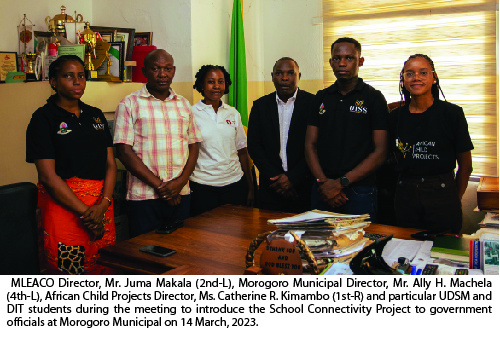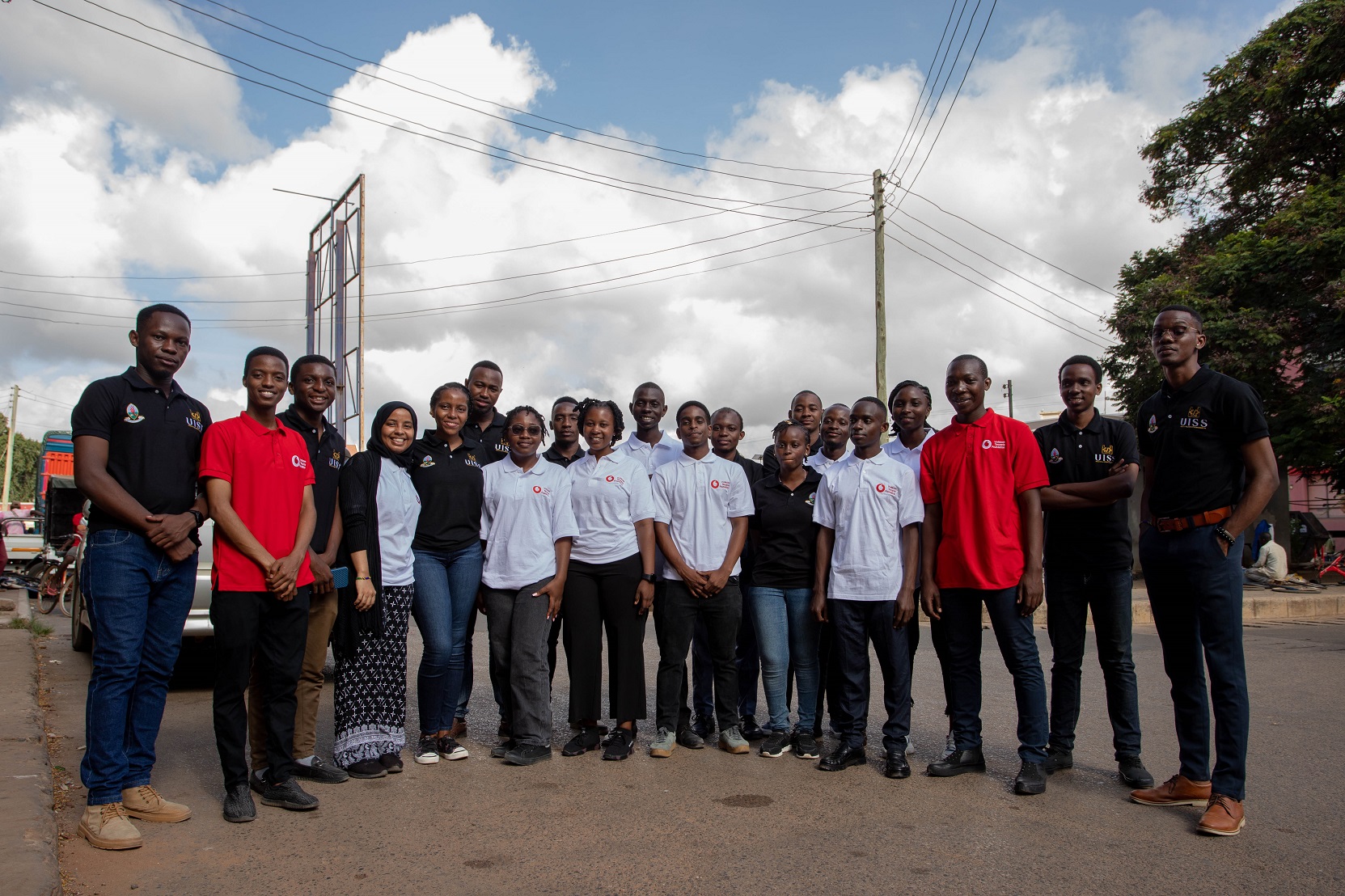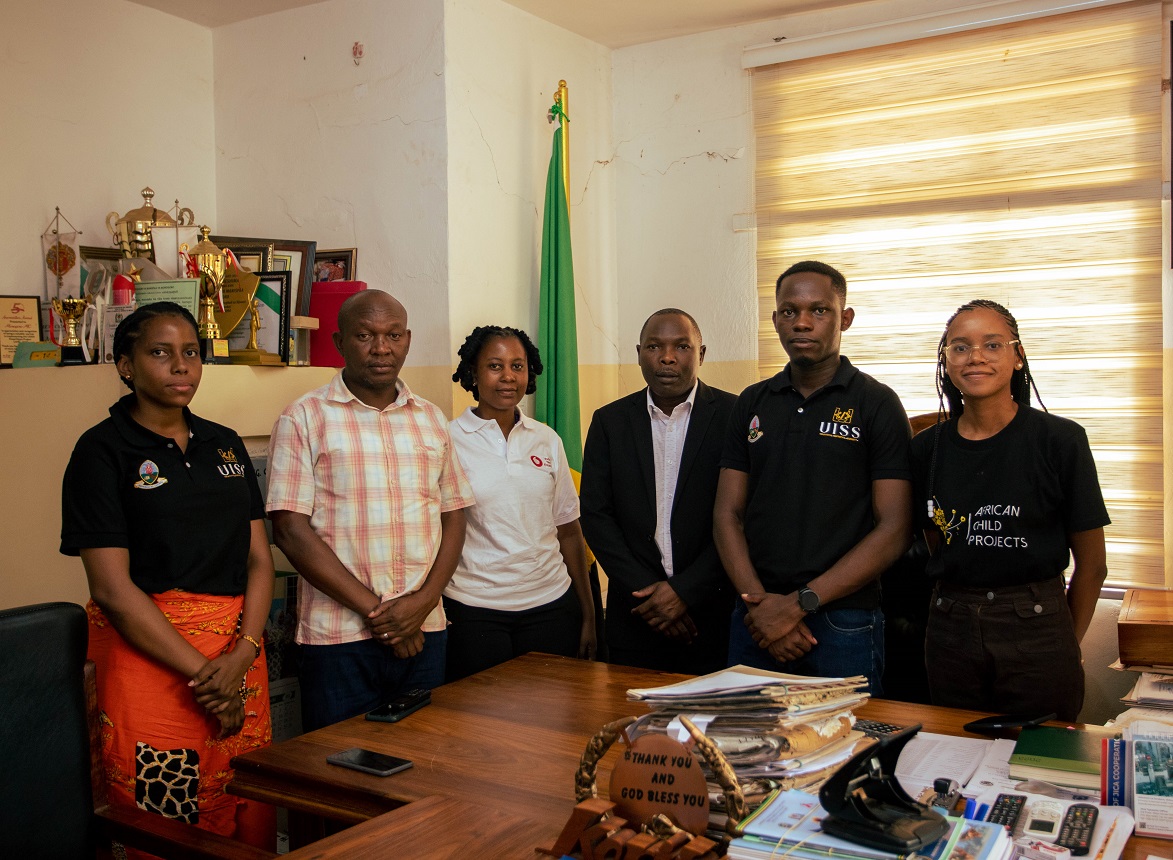UDSM-COICT to participate in connecting 300 schools to internet
By Special Correspondent, CMU
The College of Information and Communication Technology (CoICT) of the University of Dar es Salaam in collaboration with various partners is implementing a project that will see 300 secondary schools in Tanzania connected to the Internet to help students access learning materials online.
In this project, in which students would access learning materials through the E-fahamu portal, UDSM is partnering with the Basic Internet Foundation from Norway, University of Oslo, Norway, African Child Projects, Vodacom Tanzania Foundation, Universal Communication Service Access Funds (UCSAF), Arusha Technical College (ATC) and Dar es Salaam Institute of Technology (DIT).
The school connectivity project is in its third phase and was inaugurated at Joel Bendera Secondary school, Tanga, Tanzania in March 2023. It aims to provide connectivity infrastructure to schools in Tanzania mainland and Zanzibar as well as offering digital skills to all teachers to enable them to incorporate ICT in their teaching and learning for students.
The Head of the Department of Electronics and Telecommunication Engineering (ETE) at CoICT, Dr. Baraka Maiseli, said that, in this project University students would participate in network design, installation, maintenance as well as creating digital skills content and applications usage support.
“Students who will participate in the implementation of this project include those from the University of Dar es Salaam, Dar es Salaam Institute of Technology and Arusha Technical College. Their role will also involve training secondary school teachers and students on the contents created for the project”, said Dr. Maiseli.
Regarding the partners of the project, Dr. Maiseli said that the Basic Internet Foundation would donate Microtik antennas and routers, Vodacom Tanzania Foundation would donate ICT devices for schools, E-fahamu portal, and data bundle on monthly basis, while UCSAF would provide ICT devices and data bundle, and African Child Projects would be the lead project implementors.
Solution-creation purpose
Meanwhile, the UDSM project coordinator, Dr. Moses Mchome, said that the main activities in the program, which is an outcome of a Memorandum of Understanding between UDSM, African Child Projects, and the Basic Internet Foundation, aims at solution creation and thus offered students real-world challenges to help the industry reach a specific goal.
“Mentorship of university students through innovation and projects is an effective way to create solutions and a workforce for the industry. Students gain practical experience and develop solutions relevant to the industry and of value to the community. We help the industry find skilled workers,” said Dr. Mchome.
He further said that, through collaboration with various stakeholders from the industry, UDSM developed programs that train students in skills demanded in the industry to make them job-ready for onboarding when they graduate and support them in creating businesses for themselves. The projects also identified potential talent and recruited students for future job opportunities.
Other News
Sun, 10.Nov.2024 : UDSM na UH vyafanikisha upatikanaji wa Kamusi ya Kihispania-KiswahiliFri, 08.Nov.2024 : UDASA Bonanza 2024 picks up vibes
Fri, 01.Nov.2024 : Robotics Bootcamp attracts hundreds of young talents to UDSM, sparks passion for Physics and Technology
Wed, 30.Oct.2024 : Dr. Jackson Justo drives AI-powered energy innovations for sustainable future
Thu, 24.Oct.2024 : Partnership with NMB promises innovation, talent development and digital transformation at UDSM
Wed, 09.Oct.2024 : Economics don Dr. Innocensia John is named among 2024 top Agri-Food Pioneers
Tue, 08.Oct.2024 : School of Mines and Geosciences gears up for Helium exploration in Tanzania
Sat, 05.Oct.2024 : UDSM students excel in 2024 NGEA Award Regional Challenge






